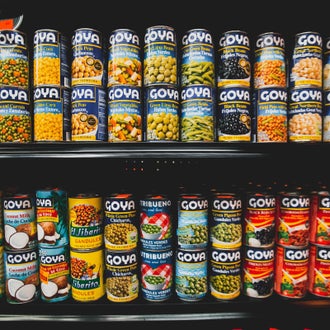I read that eating canned foods can be dangerous for your health and cause cancer. Why isn't this information out there?"
In Australia (and most other countries), cans are made out of tin-coated steel. But a few countries that we import canned food from may still use lead solder in cans. Cans are also usually lined internally with a plastic that protects the contents from contamination and increases the shelf life of the canned product. Sometimes this plastic can contain a chemical called bisphenol A, known as BPA. Traces of both lead and BPA have been found in canned food. In addition, the canning process can involve adding sodium chloride (salt) to help preserve the goods.
Although exposure to lead can cause lead poisoning (which is why it has been phased out of use in tin cans in most countries), information about the relationship between lead and cancer is not conclusive. The World Health Organization’s International Agency for Research on Cancer (IARC) has classified inorganic lead compounds as “probably carcinogenic to humans”. Since cans that are prepared in Australia do not contain lead solder, any potential cancer risk can be avoided by eating Australian canned food and avoiding imported cans.
Canada, the European Union and some US states have phased-out the use of BPA in some products due to consumer concerns. However, Australia’s regulatory agency, Food Standards Australia New Zealand, has reported that unless people are eating extremely large amounts of BPA-containing food, BPA levels are unlikely to be above the internationally accepted safe level.
Canned food also contains large amounts of sodium, or salt. In 2004, researchers reported that a large study done in humans showed an association between a high-salt diet and gastric cancer. The National Health and Medical Research Council advises that Australian adults should aim to consume no more than 4g of salt (or 1600 mg of sodium) a day. However, tinned sardines and tuna do offer a variety of health benefits, including omega 3 fatty acids. Canned food is unlikely to be a cause of cancer when consumed as part of a balanced diet. Cans that are free of BPA and lead are readily available within Australia for concerned consumers.

